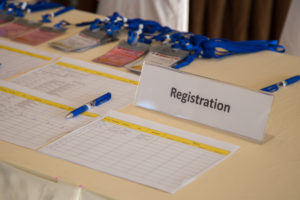A successful and meaningful business meeting or event is made possible with extensive preparation. The location, equipment to be used, availability of your motivational speaker and number of attendees are only some of the aspects you should consider as you organize the event. While it may be quite a challenge planning for a business meeting and ensuring its success, the following tips can guide you throughout this task.
7 Simple Steps For Planning Effective Business Meetings and Events:
1. Establish the objectives of the meeting, and be sure these are clear to your attendees.
Before you invite a keynote speaker to your business meeting, make sure the person you are planning to hire is an expert in the topic to be discussed during the event. After all, the main purpose why you are setting a meeting is to promote an in-depth understanding on a specific topic, which only a highly competent motivational speaker can facilitate. In addition, you should inform your attendees about the topic or objectives of the meeting, so they would be guided accordingly and know what to expect from it.
2. Evaluate the necessity to set a meeting.

Is a business meeting the most effective means of imparting the topic to your audience? Or perhaps, there is another way for you to deliver the message without having to set a meeting. Keep in mind that planning an event can take a huge amount of your time and energy, so you need to be sure a meeting is indeed worth it.
3. Check the availability of your keynote speaker.
You need to realize that top motivational speakers in the USA such as John Pullum book dates several months to years in advance. Thus, you should check first your speaker’s availability for your chosen date and location of the event to avoid any hassles along the way. After all, even if you have selected the finest location, the event will never be complete without your speaker.
4. Have a full understanding of the location you plan to book for the event.
Be sure to check the location and size of the room. Considering the number of attendees, the room should be large enough to accommodate everyone. Moreover, you need to be aware of the services and amenities offered by the facility. Audio and video equipment, as well as whiteboards and other essential items you will need for the meeting should be taken into account when you book the place for your meeting.

5. Prepare your guest list.
The size of your audience will impact not only your choice of location, but also the materials and services to be provided. With this in mind, you should prepare your list of attendees carefully, and be sure to obtain the contact details of these people in case there is a need for follow up after the meeting.
6. Maintain the focus on the primary objective of the meeting.
There is a schedule to follow in every meeting, so it is only right that you stick to the agenda instead of steering far from it. This is also the best way to maximize learning among your attendees and to ensure the fact that everyone will have an enriching experience after the event.
7. Be sure to conduct an evaluation of the event.
After the business meeting, you may hand out evaluation forms to your attendees to obtain insights from them and how they feel about the depth of the discussion, speaker’s level of competency and the overall atmosphere of the meeting. This will also give you a better understanding of any needs for improvement for future events such as this one.
With these essential tips on how to plan for a business meeting, you can accomplish your set of objectives and have a worthwhile experience at the same time.